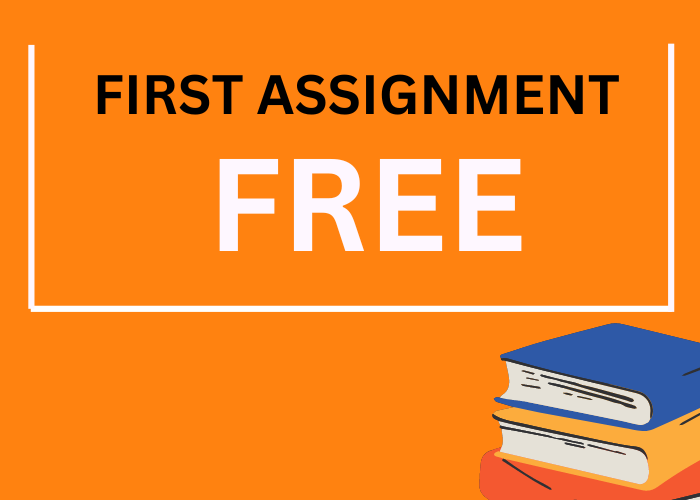Academic writing, in particular, can only be affected by sound critical thinking. These skills allow students to work with information, scrutinize proof and arguments, and provide sound conclusions. That is why, as assignment helpers, we know the struggles students go through to develop these skills. In this blog, we will share with you practical approaches to strengthening the thinking process in the context of academic writing so that you can achieve success in your tasks.
Comprehending Critical Analysis in Scholarly Communication
Critical thinking encompasses the processes of assessment, integration, and judgment in the tentative formation of conclusions. In academic writing, it refers to moving beyond an outline of an event and giving a more meaningful explanation and supporting evidence. Resources for assignments stress the need to query presumptions, develop multicultural perspectives, and ensure that facts support arguments made.
1. Question Everything: A Key Approach by Assignment Helpers
Developing critical thinking starts with questioning everything you read and write. Assignment helpers suggest asking questions like:
- What is the main argument or thesis?
- What evidence supports this argument?
- Are there any counterarguments or alternative perspectives?
- What assumptions are being made?
Critically engaging with the material can uncover deeper insights and produce more thoughtful academic writing.
2. Analyze Arguments: Insights from Assignment Helpers
The evaluation of arguments is an essential component of the skill of critical thinking. Assignment helpers recommend breaking down arguments into their constituent parts: arguments, support and warrant. Assess how credible and accurate the sources provided are. Ask if the logic used leads to the conclusion directly from the findings.
For example, while reading a scholarly article, determine the critical arguments made by the author and what evidence they provide in support of an argument. Evaluate the extent to which evidence supports the claims made. This line of thinking is beneficial when constructing arguments in your writing and analyzing what others have written.
3. Develop a Strong Thesis: Essential Advice from Assignment Helpers
An effective thesis statement is the foundation of any good paper in academic writing. According to assignment helpers, a thesis should present the writer’s stand and a critical evaluation of it. It should be well-defined, contestable, and backed by facts.
When crafting your thesis, consider:
Is it well said?
Does it come down clearly on one side of the divide?
Is it possible to justify it with reliable facts?
The thesis helps direct and organize your research and prevent your paper from becoming unfocused and meandering.
4. Evaluate Sources Critically: Pro Tips from Assignment Helpers
It is important to note that not all sources available fall under the same category or have the same credibility. Connecting to the aspects of assignment helpers, students are also explained about the usefulness of assessing sources in terms of credibility, relevance, and bias. Employ registers such as academic databases, peer-reviewed journals, and other authorities’ books as the primary information source.
When evaluating sources, consider:
What should we know about the author, his qualifications, and his experience?
Is the publication reputable?
To the specific questions that guide students in assessing sources, current and pertinence might be answered as follows:
Is there related self-interpretation, and if yes, does it contain any biases or conflicts of interests?
The checklist helps avoid making probing conclusions or arguments based on plainly incorrect or unreliable sources.
5. Structure Your Argument: Assignment Helpers’ Blueprint
A well-structured argument is essential for clear and persuasive academic writing.
The reader has to grasp the author’s point of view to learn something new or argue to find the writing logically organized. According to the assignment helpers, it is advised to divide your paper into three parts: introduction, body, and conclusion.
Introduction: Introduce your topic and indicate the course of the argumentation.
Body: Expand each point further in different sub-sections of the relevant discussion sections with supporting materials and analysis. Using topic sentences is also a way to announce the following paragraph and to let the reader follow the scheme of work done.
Conclusion: Repeat the key ideas formulated and reaffirm the paper’s purpose to stress the importance of discoveries made.
The clarity of the structure assists the reader in following the flow and enables them to embrace what you are trying to convey.
6. Use Evidence Effectively: Assignment Helpers’ Guide
It is also important to stress that evidence should be high and used whenever one is defending their arguments. Assignment helpers suggest integrating evidence seamlessly into your writing by: Assignment helpers suggest integrating evidence seamlessly into your writing by:
Introducing evidence with context.
Quoting or paraphrasing accurately.
Reviewing the information that has been gathered in support of the general argument and ailing its applicability to the argument.
The use of quotes should be limited to the extent that it does not look like a paper full of quotes. However, one should not overdo quotation marks and switch between paraphrasing and original wording for a smooth writing style and proper attribution.
7. Consider Counterarguments: Strategic Tips from Assignment Helpers
To sum up, assignment Helpers’ Proven Strategies for Strategic Planning
Responding to opposing arguments also helps advance an argument and shows a more profound thinking process. The assignment helpers also recommend that one understand that there could be other opinions that are different from one’s, and one should ensure that one presents facts to prove otherwise.
For instance, if your thesis restricts the factors causing climate change to several main factors, think of an opposing argument, such as natural causes. Provide evidence for the thesis and indicate why the counterargument is weak.
8. Revise and Reflect: The Final Steps from Assignment Helpers
Revising an already written piece is a critical process in writing. Writing experts advise that one should power down after the first attempt at completing an assignment. Carefully proofread your paper, focusing on the logical flow of ideas, consistency, and organization.
Reflect on the following:
Are your arguments grounded appropriately?
Have you responded to possible rebuttal arguments that may be presented?
Is your thesis specific and easily discernable?
Is the line of your reasoning clear? Are you moving smoothly from one point to another in your paper?
It is also helpful to get feedback from classmates or others who helped with assignments to get ideas for improvement.
Conclusion: Developing Superior Critical Thinking Skills with the Help of Assignments
Writing scholarship with a focus on critical thinking is a gradual process that requires persistence. Students can improve their critical thinking skills when examining assumptions, assessing arguments and sources, and organizing texts.
As your assignment helpers, we stand with you during this process. With our help and advice, you can enhance your academic writing, get higher scores, and become a wiser and more discerning student.
Need help with academic writing? Now you know that our assignment helpers are ready to help you. Please do not hesitate to contact us for professional advice and help!


